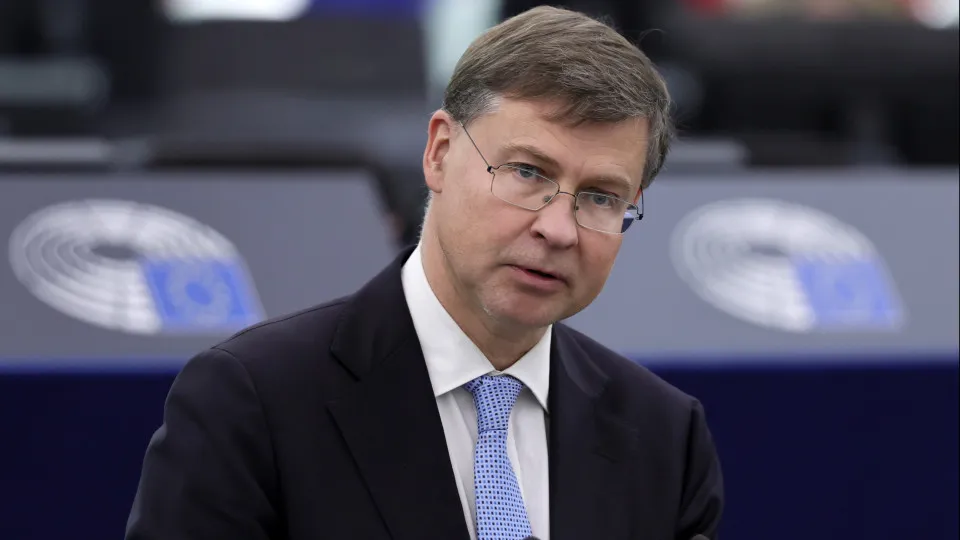
“It is important that Portugal maintains its course regarding fiscal policies, continues to reduce its debt-to-GDP [Gross Domestic Product] ratio, because, as current forecasts show, next year this is expected to fall below 90% of GDP due to the gradual elimination of energy measures,” stated the European Economy Commissioner, Valdis Dombrovskis.
Speaking at a press conference on the sidelines of the European Parliament’s plenary session in Strasbourg, France, he noted that regarding the OE2026, “it is in compliance with obligations arising from the new economic governance framework.”
“In short, we consider that Portugal’s fiscal situation this year points to a balanced budget, while for the next year we predict a slight deficit of 0.3% of GDP,” added Valdis Dombrovskis.
The European Commission today deemed that the proposed OE2026 is “in line” with EU recommendations and highlighted the country’s efforts to reduce its debt.
As part of the European Semester autumn package published today, the European executive announced that Portugal has an OE2026 “in compliance,” enabling the country to “continue implementing the fiscal policies as planned” for the upcoming year.
This comes after last year, when Brussels considered Lisbon’s budget for this year not fully compliant due to still providing energy support in the wake of the energy crisis, such as the reduction in ISP.
“This has been a general recommendation that we have been making to all Member States. We know many were implementing energy support measures following the energy crisis after Russia’s invasion of Ukraine, but now the situation has stabilized, so we find it necessary for Member States to gradually eliminate these measures to improve fiscal sustainability,” further stated Valdis Dombrovskis, responding to Lusa at the press conference.
Also today, the European Commission warned that Portugal “risks significantly exceeding” the maximum net expenditure ceiling set under the medium-term plan, although pointing to an “almost balanced” fiscal situation by 2026.
In practice, this is a warning from Brussels about a potential future issue, for which the European executive does not demand any immediate changes.
Regarding the conclusions of the post-program monitoring of macro-financial assistance, also published today, Brussels indicates that “the Portuguese economy regained dynamism in the second quarter of 2025.”
“Despite some slowdown in foreign tourism growth, GDP is expected to continue to grow at a rate above the EU average, supported by a new set of fiscal measures in the form of a bonus for pensioners and IRS refunds paid in August and September,” it is indicated.
As for the budget balance, the institution’s experts expect that “Portugal will return to a deficit over the forecast horizon,” as “current expenditure will continue to rise, driven by fiscal policy measures on public wages and social benefits, as well as increased interest charges.”
It is certain that, according to the European executive, “Portugal retains the capacity to repay its debt” and “the country’s economic, fiscal, and financial situation remains broadly solid, despite the risks associated with geopolitical uncertainty.”
The European Semester is an annual exercise in economic policy coordination.




